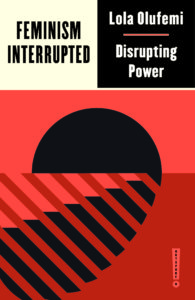The antidote
Lola Olufemi’s debut is a worthy guide for those seeking a more inclusive feminism, finds Huda Elmi.
 Lola Olufemi’s Feminism Interrupted: Disrupting Power is an incisive and urgent interjection into the discourse. Refreshing, lyrical and sharp, it gives form to the pitfalls of prevailing feminist ideology and offers an alternative as we organise in the #MeToo age.
Lola Olufemi’s Feminism Interrupted: Disrupting Power is an incisive and urgent interjection into the discourse. Refreshing, lyrical and sharp, it gives form to the pitfalls of prevailing feminist ideology and offers an alternative as we organise in the #MeToo age.
The opening chapter, Know Your History, serves as an anchor for themes and analysis explored throughout the book. Olufemi uses her lived experience to tie together complicated academic terminology, creating an accessible narrative. She first acknowledges that history is inherently political. In schools, the texts that are chosen, the voices and experiences that are amplified, the narratives that are taught and the values we use to shape our understanding of history are biased. Olufemi therefore establishes that we hold subjective understandings of the past. She then moves on to a critique of the unstable foundations of neoliberal feminism and argues that, from its inception, it has worked to undermine progress for women.
Confident in tone, every page is punctured with a political message. From the state to the home, every layer of society is unpeeled to uncover the nefarious ways in which misogyny and patriarchy operate. Notably, the questioning of institutions such as prisons, healthcare and the judicial system takes aim at the very notion of ‘safety’. Who is afforded this safety and at what cost? Olufemi posits that harm to marginalised or silenced women should be treated as harm to all women, a decisive breakaway from the pervasive type of feminism uninterested in social transformation. As you navigate each chapter, demands often presented as politically radical in today’s public discourse are explained as necessary. All things considered, it would be a mistake to think this work is laden with jargon. Largely, Olufemi’s political analysis is woven into anecdotes, historical moments or broader exposition of feminist thought. Olufemi’s voice is clear throughout, masterfully switching between storyteller and activist.
Art for Art’s Sake is a notable and standout chapter. Nestled between chapters exploring gendered Islamophobia and rights for sex workers, this section transports the reader from the tangible to the abstract as it examines how art can be used as a tool to disseminate feminist ideas. It is packed with detail and wrapped with carefully constructed insight. Evident in this section is Olufemi’s creative background; from paintings to protest songs, each medium is given space to bear testimony. This provides useful context in an imaginative way. To me this chapter is the most passionate: a truly rich and vibrant injection that colours the entire book.
Olufemi is impressive in her ability to string together disparate concepts without giving you whiplash. This is no easy skill. To help the reader to transition between reproductive justice and transmisogyny whilst still feeling connected to the wider critique and satiated with the level of detail is impressive. It is what gives this work a feeling of comprehensiveness even though it is only 145 pages long.
This book is brilliant for those who, like me, have felt often let down by feminism in its current mainstream iteration to ever really delve too deeply into its meaning. It provides voice to the frustrations felt as you navigate feminist spaces, only to feel as though you don’t quite belong.
Intersectionality has become a buzzword in recent years to try and mitigate these barriers to participation experienced by marginalised groups, but this book suggests a more powerful antidote is needed.
It is not enough to diversify or pay lip service to spaces that, in and of themselves, don’t challenge the political and social order we exist in. Something much more drastic and forceful is needed. Olufemi’s book hopes to be the catalyst in this transformation. It should become the go-to work for those seeking to redefine feminism in the image and interests of all women.
